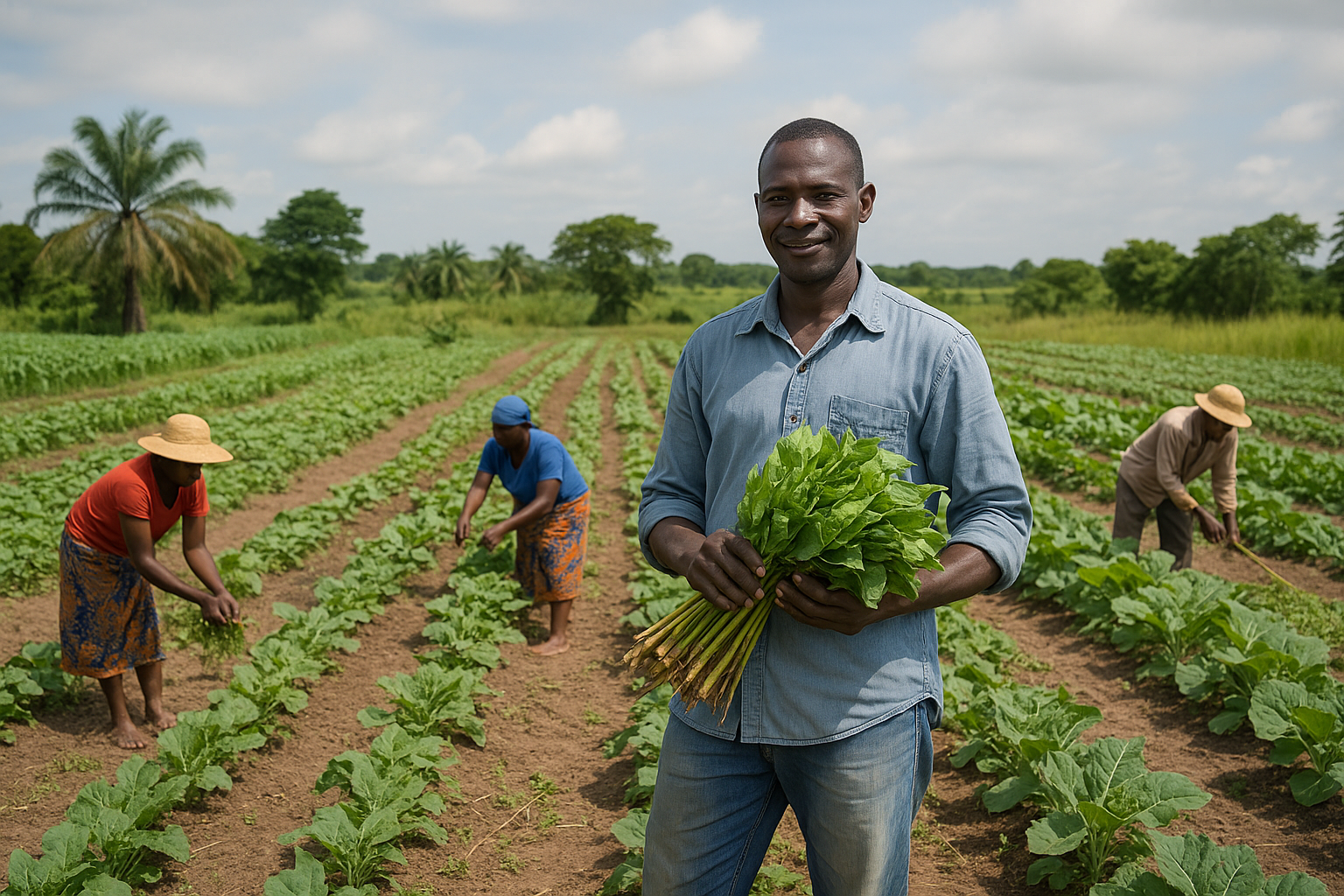FARM P3 Pilot Launched to Boost Zimbabwe’s Sorghum Value Chain and Climate Resilience
A core feature of FARM P3 is its focus on mobile threshing and mechanization services, which are expected to revolutionize smallholder operations.

- Country:
- Zimbabwe
The International Fund for Agricultural Development (IFAD), in partnership with the Government of Zimbabwe and several private sector collaborators, has officially launched the pilot phase of the Food and Agriculture Resilience Mission Pillar 3 (FARM P3). This ambitious initiative marks a major milestone in Zimbabwe's efforts to modernize its agriculture sector, particularly the sorghum value chain, while enhancing resilience to climate shocks and promoting inclusive rural growth.
A Strategic Initiative for Food Security
The FARM P3 pilot is designed to strengthen Zimbabwe's agricultural systems by tackling the long-standing challenges of post-harvest losses, low productivity, and limited private investment in rural mechanization. The project's primary objectives include reducing post-harvest losses—currently estimated at up to 30 per cent—and improving smallholder farmers' incomes through targeted technological and institutional interventions.
By emphasizing youth-led enterprises and public-private partnerships, the initiative aims to build sustainable agribusiness ecosystems that promote innovation, efficiency, and equitable growth. The project aligns closely with IFAD's broader mission to transform rural economies by empowering smallholder farmers and improving access to markets, finance, and climate-smart technologies.
Unlocking the Potential of Sorghum
Sorghum, a staple crop renowned for its drought tolerance and adaptability, is increasingly recognized as a key pillar in Zimbabwe's food security strategy. Despite its resilience, adoption remains limited due to several barriers. Many smallholder farmers still rely on labor-intensive manual processing, struggle with high post-harvest losses, and face difficulties meeting the quality requirements of commercial buyers.
Addressing these gaps, FARM P3 seeks to unlock the untapped potential of sorghum through enhanced mechanization, aggregation, and quality improvement. By integrating small-scale producers into structured markets, the programme will contribute to higher productivity and better price realization for farmers.
According to Alex Nyakatsapa, Senior Value Chain and Agribusiness Advisor of the Smallholder Agriculture Cluster Project (SACP), the pilot offers a game-changing opportunity:
"Sorghum could be central to building Zimbabwe's climate resilience, but it remains underutilised. By engaging private-sector partners from the start, the FARM P3 pilot opens a pathway to overcome these challenges and spread benefits across the country, supporting small-scale farmers to become more productive and more prosperous."
Promoting Mechanization and Private Investment
A core feature of FARM P3 is its focus on mobile threshing and mechanization services, which are expected to revolutionize smallholder operations. These services will be piloted across key sorghum-growing regions to demonstrate cost-effective models that can significantly reduce losses and increase yields.
Rather than implementing direct service delivery, the programme emphasizes creating enabling conditions—linking service providers, buyers, and financiers to ensure sustainability. By doing so, FARM P3 aims to develop a market-driven approach to mechanization that fosters local ownership and innovation.
Building Youth Entrepreneurship and Jobs
Over the next 12 months, the pilot will engage around 6,000 smallholder farmers and identify approximately 50 mechanization service providers, including young entrepreneurs and lead farmers. These participants will receive mentorship and technical assistance to develop viable business models, access financial services, and integrate into structured value chains.
By supporting youth-led enterprises, the programme not only improves agricultural productivity but also generates employment opportunities across the rural economy. It is expected to attract interest from investors and technology providers keen to expand mechanization in Zimbabwe's dryland regions.
Francesco Rispoli, IFAD's Country Director, highlighted the initiative's broader vision:
"Through FARM P3 we not only test equipment that raises smallholder incomes in Zimbabwe, but also work with buyers, financial institutions, youth entrepreneurs and farmers to build business models that create jobs and make mechanization affordable, profitable, and sustainable."
Towards Scalable and Climate-Resilient Agriculture
The pilot is part of a broader strategy to build resilient food systems that can withstand the increasing impacts of climate change. By combining innovative technology, financial inclusion, and private sector participation, FARM P3 seeks to establish a replicable model for other value chains and regions.
If successful, the initiative could inform national policies and attract larger investments into Zimbabwe's agriculture sector, helping the country move closer to sustainable food security and rural transformation. With support from IFAD and its partners, FARM P3 represents not just a pilot project, but a foundation for scaling climate-smart, inclusive agribusiness solutions across sub-Saharan Africa.
ALSO READ
-
International Cocaine Smuggling Nexus Busted: Tanzanian and Zimbabwean Nationals Charged
-
Zimbabwe Seeks New Leadership After Dismal World Cup Campaign
-
Zimbabwe's Maize Import Policy Reversal Amid Harvest Downturn
-
John Steenhuisen Welcomes Zimbabwe’s Lifting of Maize Import Ban
-
Ben Curran's Century Propels Zimbabwe to Lead









